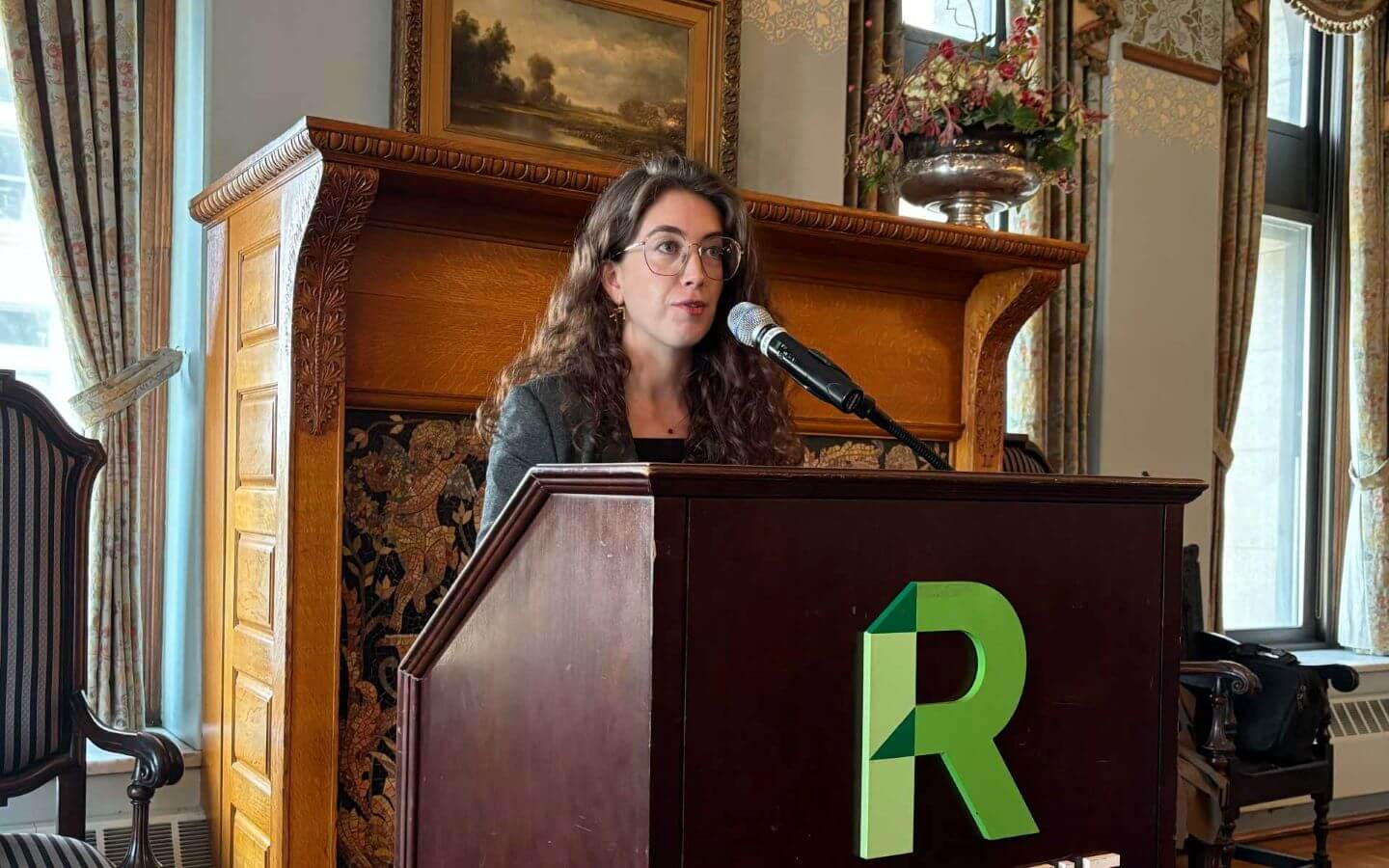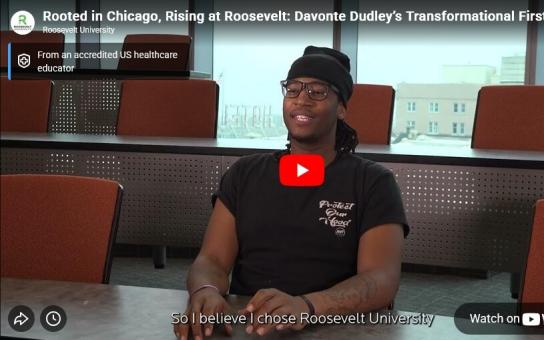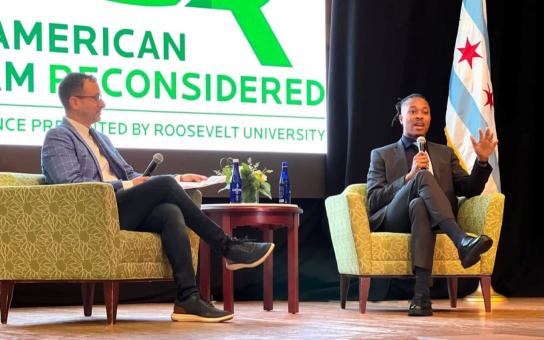
On April 24, 2025—Roosevelt University’s 80th anniversary—poet and scholar Erin O’Luanaigh delivered the fourth annual Montesquieu Forum Lecture to a packed audience on the Chicago Campus. The lecture, hosted by the Montesquieu Forum for the Study of Political Philosophy and the American Founding, served as both an intellectual celebration and a reflection of Roosevelt’s founding mission: to expand access to education regardless of race, religion or background.
Professor Stuart Warner, founding director of the Montesquieu Forum and professor of philosophy, opened the event with a moving acknowledgment of Roosevelt’s legacy. “Roosevelt, then and now, has been committed to the proposition that no one, regardless of race or religion or ethnicity, should be deprived of the opportunity of university education,” Warner said. “I think this is something the university remains proud of, and thus, on our 80th anniversary today, April 24, 2025, it’s worth making note of.”
Warner also introduced O’Luanaigh with humor and admiration, highlighting her academic journey and artistic achievements. A graduate student in creative writing at the University of Utah and an accomplished poet with work published in The Hopkins Review, Los Angeles Review and Southern Review, O’Luanaigh came to Roosevelt to present her lecture: “Caught in a Truth: Irony, Cliché, and Performative Speech in The Awful Truth.”
Focusing on Leo McCarey’s 1937 screwball comedy The Awful Truth, O’Luanaigh examined how language, irony and performance shape relationships—particularly marriage. “Lucy suggests not just the outward sign of a ring on a finger, but an inner reality,” she explained. “A marriage demands not a cover-up of infidelity, but real fidelity.”
Referencing philosopher Stanley Cavell’s theory of the “comedy of remarriage,” O’Luanaigh explored how the film’s protagonists, Lucy and Jerry, must learn to converse anew. “Talking together is the remarriage comedy couple’s essential way of being together,” she said. “But this marital conversation hits a roadblock... and so, in Cavell’s words, the central pair must learn to speak the same language once again.”
She also introduced the idea of “being caught in a truth”—a reversal of the more familiar phrase “caught in a lie.” “To be caught in a lie is a cliché. Perhaps, to be caught in a truth is an irony,” she said. “Irony occurs when something’s outward appearance contradicts the inner reality.”
O’Luanaigh’s analysis connected film, literature and philosophy to broader human concerns about trust, authenticity and love. Her talk aligned closely with Roosevelt’s commitment to fostering thoughtful, interdisciplinary dialogue—hallmarks of both the Montesquieu Forum and the university’s educational mission.
In a thoughtful Q&A that followed, students and faculty raised questions about class, gender roles and emotional vulnerability in the film. When asked which character experiences the most growth, O’Luanaigh responded, “She learns she still wants to be with him. Her desire is really foregrounded.”
Grateful for her visit to Roosevelt, O’Luanaigh closed with a warm message to the community: “Thank you to everyone who came and made my visit possible. I’m truly grateful.”


